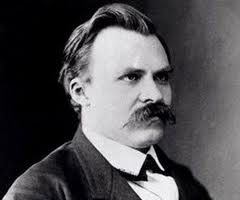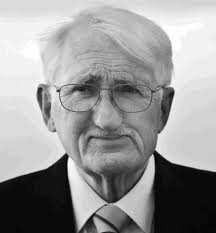German
Georg Wilhelm Friedrich Hegel

Georg Wilhelm Friedrich Hegel (1770-1831) is one of the greatest systematic thinkers in the history of Western philosophy. In addition to epitomizing German idealist philosophy, Hegel boldly claimed that his own system of philosophy represented an historical culmination of all previous philosophical thought. Hegel’s overall encyclopedic system is divided into the science of Logic, the philosophy of Nature, and the philosophy of Spirit. Of most enduring interest are his views on history, society, and the state, which fall within the realm of Objective Spirit. Some have considered Hegel to be a nationalistic apologist for the Prussian State of the early 19th century, but his significance has been much broader, and there is no doubt that Hegel himself considered his work to be an expression of the self-consciousness of the World Spirit of his time. At the core of Hegel’s social and political thought are the concepts of freedom, reason, self-consciousness, and recognition. There are important connections between the metaphysical or speculative articulation of these ideas and their application to social and political reality, and one could say that the full meaning of these ideas can be grasped only with a comprehension of their social and historical embodiment. The work that explicates this concretizing of ideas, and which has perhaps stimulated as much controversy as interest, is the Philosophy of Right (Philosophie des Rechts), which will be a main focus of this essay. Download
Friedrich Nietzsche

Nietzsche was a German philosopher, essayist, and cultural critic. His writings on truth, morality, language, aesthetics, cultural theory, history, nihilism, power, consciousness, and the meaning of existence have exerted an enormous influence on Western philosophy and intellectual history.
Nietzsche spoke of “the death of God,” and foresaw the dissolution of traditional religion and metaphysics. Some interpreters of Nietzsche believe he embraced nihilism, rejected philosophical reasoning, and promoted a literary exploration of the human condition, while not being concerned with gaining truth and knowledge in the traditional sense of those terms. However, other interpreters of Nietzsche say that in attempting to counteract the predicted rise of nihilism, he was engaged in a positive program to reaffirm life, and so he called for a radical, naturalistic rethinking of the nature of human existence, knowledge, and morality. On either interpretation, it is agreed that he suggested a plan for “becoming what one is” through the cultivation of instincts and various cognitive faculties, a plan that requires constant struggle with one’s psychological and intellectual inheritances.
Nietzsche claimed the exemplary human being must craft his/her own identity through self-realization and do so without relying on anything transcending that life—such as God or a soul. This way of living should be affirmed even were one to adopt, most problematically, a radical vision of eternity, one suggesting the “eternal recurrence” of all events. According to some commentators, Nietzsche advanced a cosmological theory of “will to power.” But others interpret him as not being overly concerned with working out a general cosmology. Questions regarding the coherence of Nietzsche’s views–questions such as whether these views could all be taken together without contradiction, whether readers should discredit any particular view if proven incoherent or incompatible with others, and the like–continue to draw the attention of contemporary intellectual historians and philosophers. Download
Jürgen Habermas

"A rule of action or choice is justified, and thus valid, only if all those affected
by the rule or choice could accept it in a reasonable disclosure"
Jürgen Habermas was born in Düsseldorf, Germany, in 1929. He was 15 when Germany lost the war to the Allies in 1945. He had served in the Hitler Youth and had been sent to defend the western front during the final months of the war. His father was a passive sympathizer with Nazism. Following the Nuremberg trials and the release of documentary films depicting the activities in the concentration camps, Habermas had a political awakening: "All at once we saw that we had been living in a politically criminal system." This horrific realization was to have a lasting impact on his philosophy, a vigilance against the repeating of such politically criminal behavior.
Habermas' entrance onto the intellectual scene began in the 1950's with an influential critique of Martin Heidegger's philosophy. He studied philosophy at Universities in Göttingen and Bonn, which he followed with studies in philosophy and sociology at the Institute for Social Research under Max Horkheimer and Theodor Adorno. In the 1960's and 70's he taught at the University of Heidelberg and Frankfurt am Main. He then accepted a directorship at the Max Planck Institute in Starnberg in 1971. In 1980 he won the Adorno Prize, and two years later he took a professorship at the University of Frankfurt, remaining there until his retirement in 1994.
Habermas embraced the critical theory of the Frankfurt School, a position that views contemporary Western society as maintaining a problematic conception of rationality inherently destructive in its impulse toward domination. He cited the domination over nature by science and technology as exemplary in this regard, And though the Frankfurt School included the 18th century Enlightenment in its evaluation of problematic rationalities, Habermas sought to defend aspects of the Enlightenment that he believed to be constructive and even emancipatory; the development of solutions to problems through the use of reason and logic, while breaking from habits, the traditional conventions that include the strict obedience of religion and its prohibitions. Because Modernism took on the Enlightenment project, it often did so by lamenting the loss of a sense of purpose, coherence and social values in modern society. For Habermas, this tendency is ineffectual, and thus he calls for a return to the Enlightenment's privileging of order and reason.
In his work, Towards Reconstructing Historical Materialism, Habermas laid out his primary differences with Marx. He viewed Marx' assessment of human evolution as simply an economic progression as too narrow a definition that leaves out any sense of individual freedom, a critique that Habermas held of modern society as a whole. Habermas divided this notion of economic progression, an evolution of societies, from the process of learning that is assumed by Historical Materialism. Marx viewed progress as linear and deterministic, whereas Habermas argues that the process of learning is dynamic and unpredictable from one epoch to another.
Habermas' primary contribution to philosophy is his development of a theory of rationality. An ongoing element throughout his work is a critique of industrial democracies in the West for the equating humanity with economic efficiency. For Habermas the ability to use logic and analysis, rationality, goes beyond the strategic calculation of how to achieve a chosen goal. There exists a possibility for community, through communicative action that strives for agreement between others — this is rationality itself. Habermas thus stressed the importance for having an "ideal speech situation" in which citizens are able to raise moral and political concerns and defend them by rationality alone.
In 1981 Habermas published The Theory of Communicative Action, in which he develops on the concept of an ideal speech situation and an accompanying ethics of discourse. Working with Frankfurt School colleague Karl-Otto Apel, he proposes a model of communicative rationality that takes into account the effect power has upon the situation of discourse and opposes the traditional idea of an objective and functionalist reason. Within societal interactions is the performance of subjective and intersubjective duties that are determined by other capacities of reasoning. The theory is developed into comprehensive social theory from which an ethics of discourse is derived. As a furthering of the speech-act philosophy of J.L. Austin, along with theories of child development as envisioned by Jean Piaget, Habermas and Apel sought to construct a non-oppressive, inclusive and universalist moral framework for discourse, based on the inherent desire in all speech acts for a mutual understanding.
The theory of communicative action was applied by Habermas to politics and law, advocating a "deliberative democracy" in which governmental institutions and laws would be open to free reflection and discussion by the public. A key obstacle to the institution of this forum of open policy making is the legitimacy of private property, as it divides interests and makes unequal the situations of individuals. Habermas believes that within his form of democracy, men and women aware of their interest in self-governance and responsibility would seek to adhere only to the most rational argument.
Habermas' garnered most respect and a teacher and mentor for many theorists working in political sociology, social theory, and social philosophy. Since his retirement from teaching he has continued to be an active thinker and writer. Download